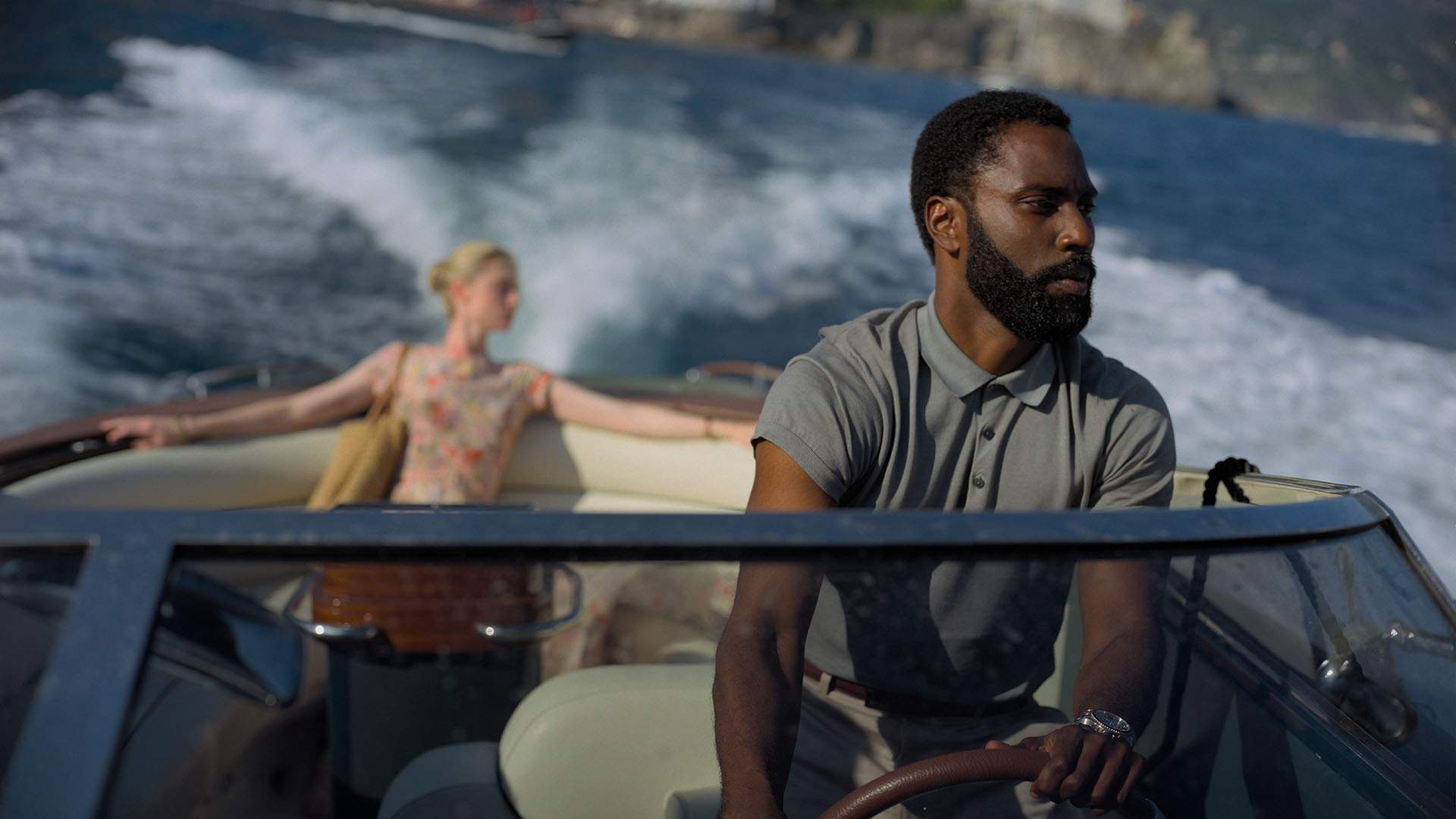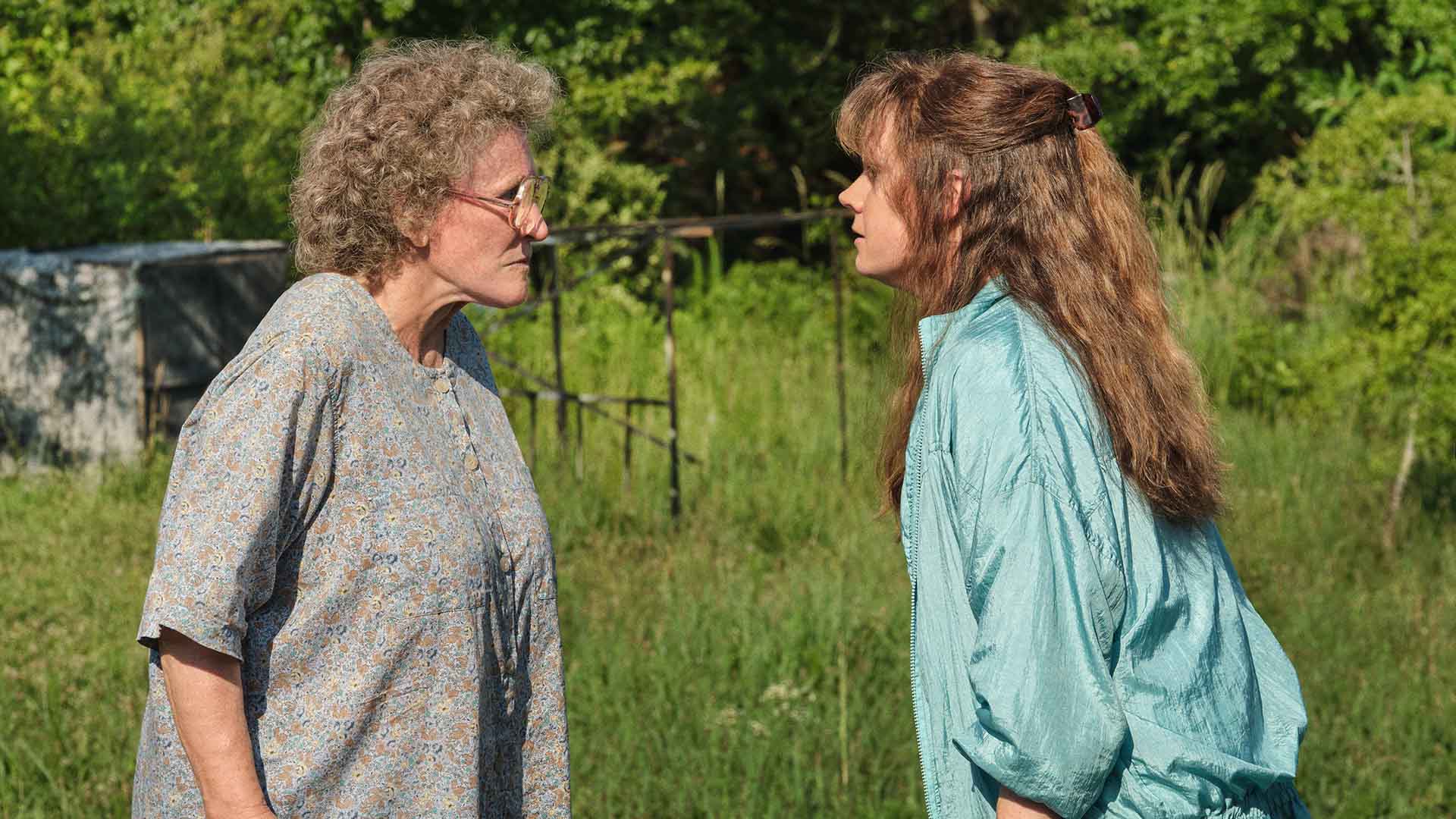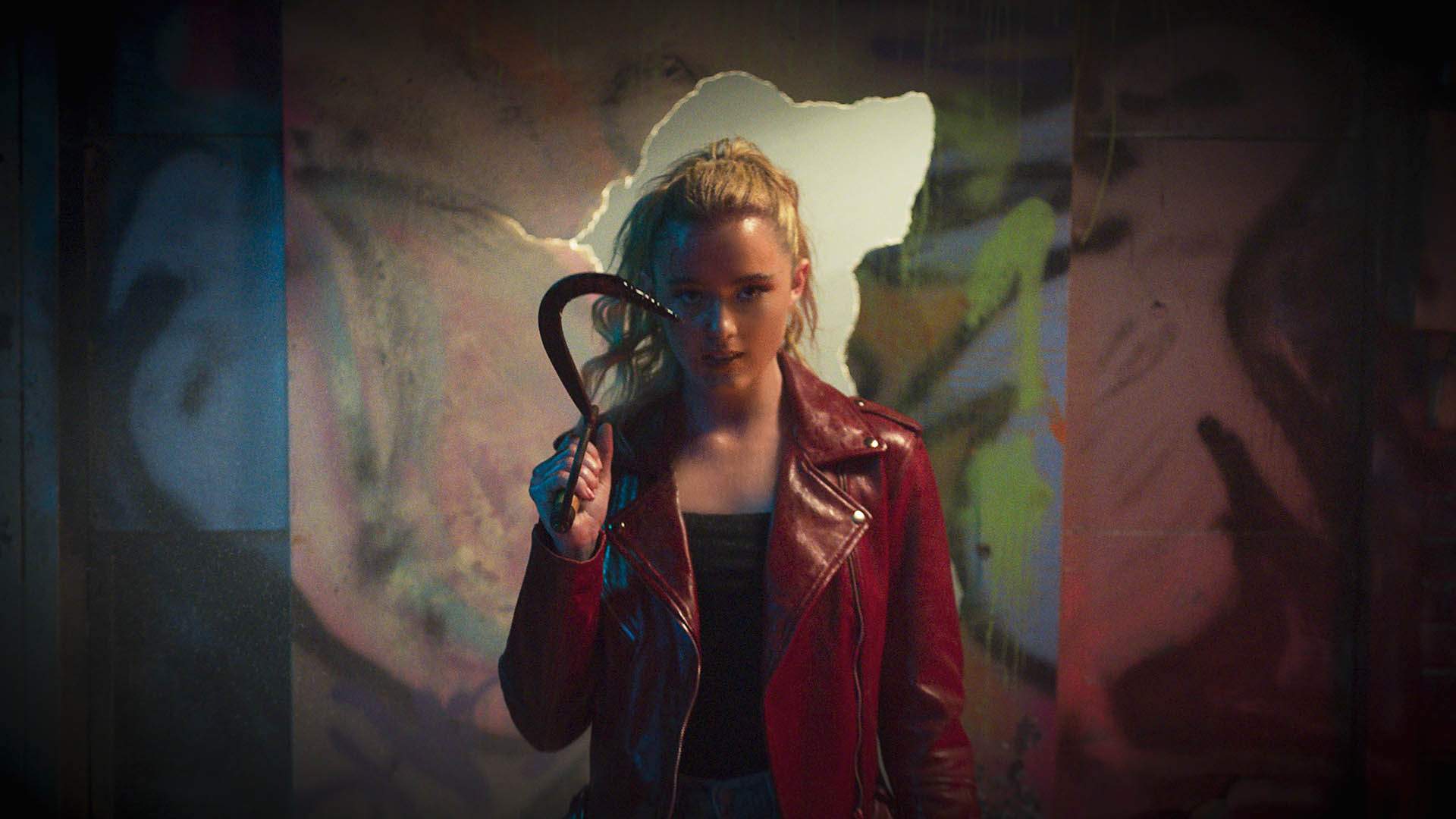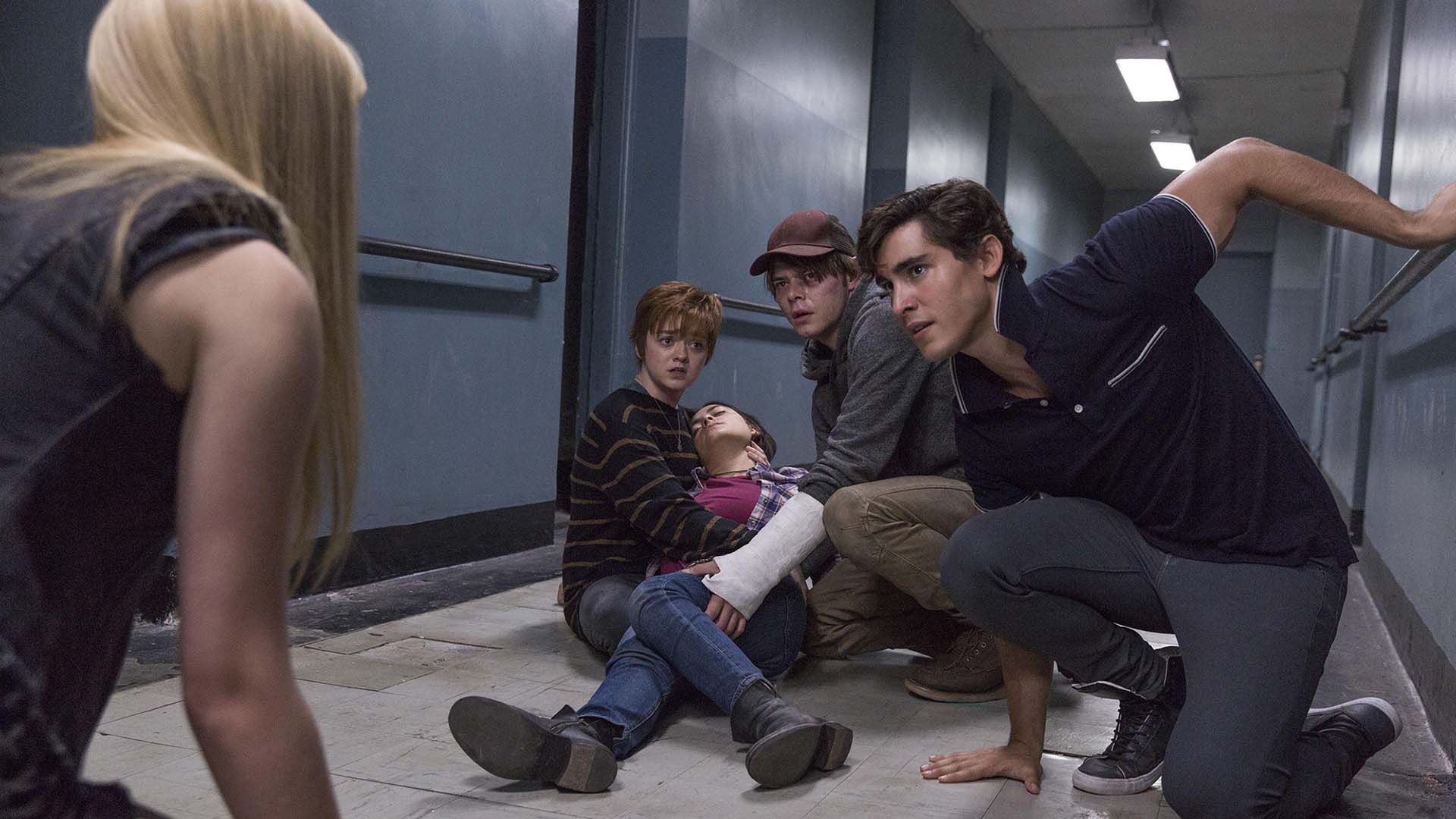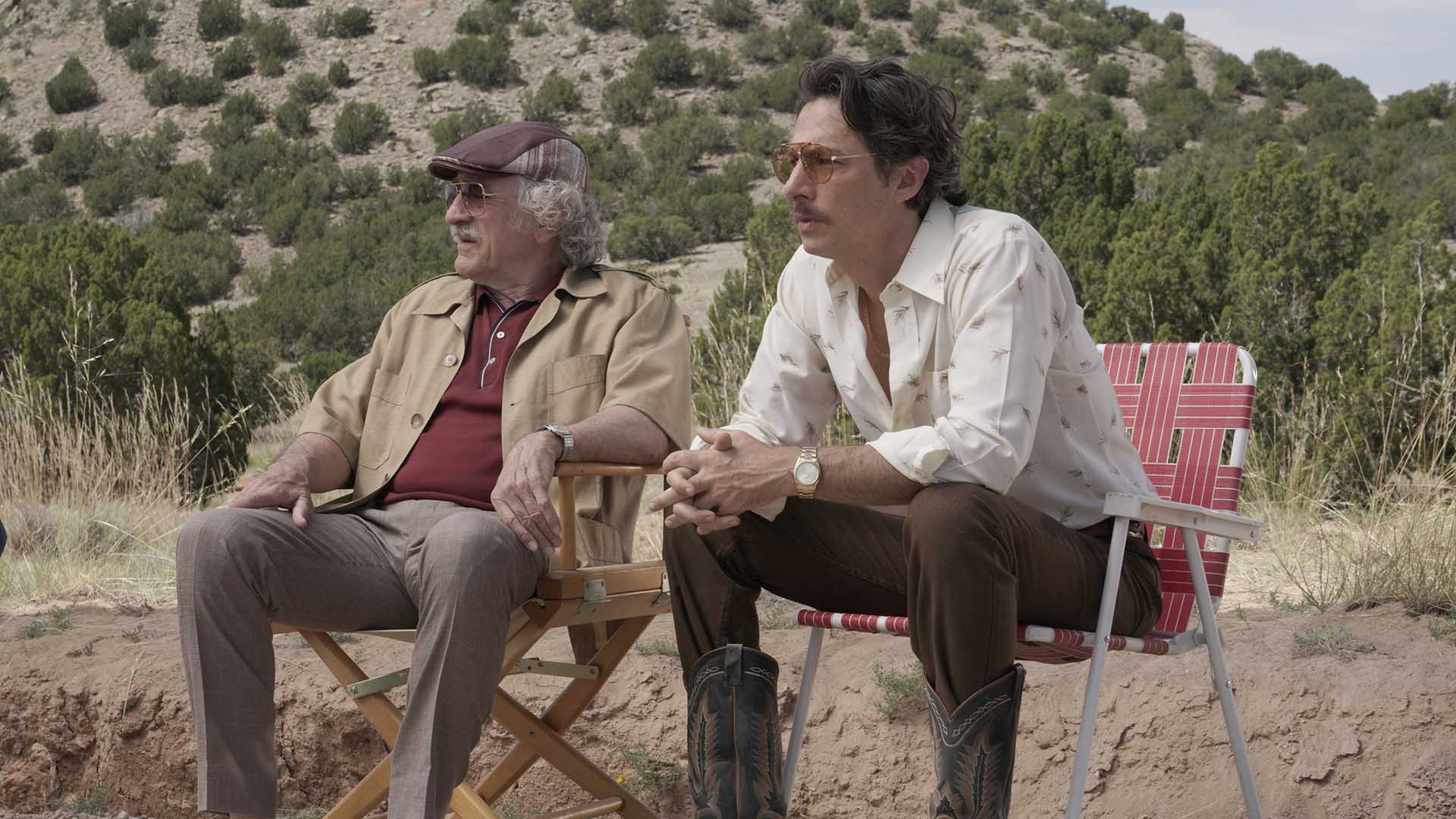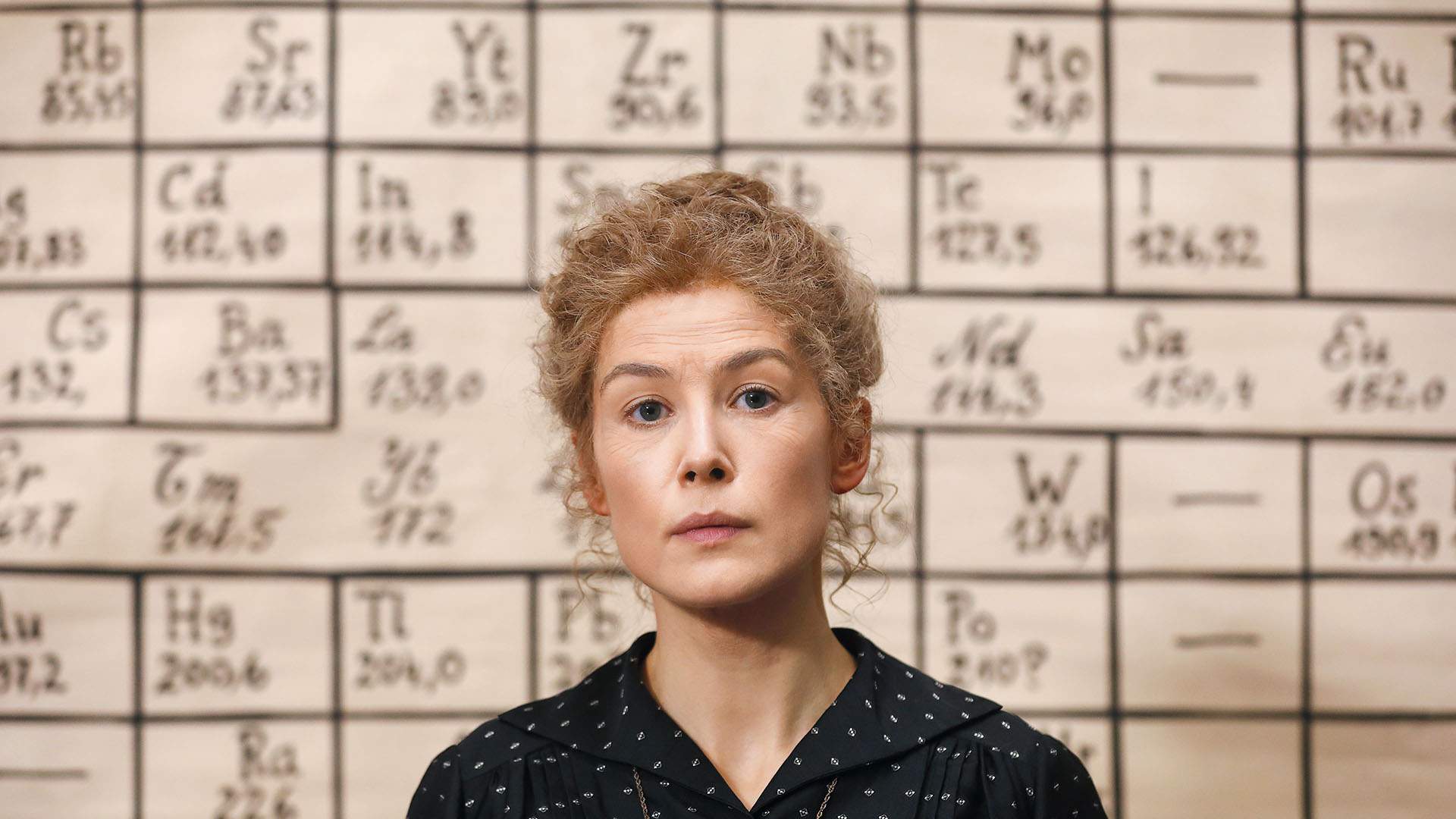The New Movies You Can Watch at Melbourne Cinemas From November 12
Head to the flicks to see Christopher Nolan's latest mind-bender, a new horror-comedy about a teen swapping bodies with a serial killer and an awards-bait drama.
It has finally happened, Melburnians. After two prolonged periods spent empty this year, with projectors silent, theatres bare and the smell of popcorn fading, Melbourne picture palaces are back in business.
During COVID-19 lockdowns, no one was short on things to watch, of course. In fact, you probably feel like you've streamed every movie ever made over the past three months, including new releases, comedies, music documentaries, Studio Ghibli's animated fare and Nicolas Cage-starring flicks. But, even if you've spent all your time of late glued to your small screen, we're betting you just can't wait to sit in a darkened room and soak up the splendour of the bigger version. Thankfully, plenty of new films are hitting cinemas so that you can do just that — and we've rounded up, watched and reviewed everything on offer from this week.
FREAKY
Blumhouse Productions has already turned Groundhog Day into a horror flick via Happy Death Day and Happy Death Day 2U. It gave 70s TV series Fantasy Island an unsettling makeover, too, with downright awful results. Now, it's Freaky Friday's turn. Body-swap movies span far beyond films starring Jodie Foster (in 1976) and Lindsay Lohan (in 2003), but given that Freaky sets the bulk of its action on a Friday, it's clearly nodding in the obvious direction. The movie begins with a prelude on Wednesday the 11th (yes, not only will most of the chaos go down on a Friday, but it'll happen on Friday the 13th). In the opening scene, four small-town high schoolers do what teens do in the first moments of slasher flicks: talk, party and make out in an empty old mansion, then get killed by a mask-wearing psychopath. Before the quartet meets that fate, its members explain who is responsible. The Blissfield Butcher (Vince Vaughn) is known to have terrorised the area but, due to a lack of recent murders, the serial killer has mostly become an urban legend of late.
Not only is the Butcher real, as writer/director Christopher Landon (Happy Death Day and its sequel) and his co-scribe Michael Kennedy (Bordertown) quickly show, but he steals a cursed Aztec dagger that lets him swap bodies with his next victim. So, when shy teen Millie (Kathryn Newton, Big Little Lies) crosses his path, she wakes up in his very tall and male guise the next morning — and vice versa. That's great news for the Butcher, who can now blend in with the adolescents that he likes to murder. It's a troubling predicament for the bullied high schooler that suddenly looks like him, though. Given that Freaky sports a big twist right there in its premise, no one should expect a surprise-laden narrative here. It does add some depth to its high-concept horror-comedy idea, including calling out society's accepted notions of male power and making it plain that women are never seen in the same fashion, but the movie proves a patchwork affair overall. In other words, sometimes things fall into place entertainingly, and sometimes they don't. The slick, fast-paced flick is particularly engaging when it ramps up either the gore-splattered horror or the over-the-top comedy, though, and it sports top-notch lead casting choices. Indeed, without either Vaughn or Newton, it might've resembled The Hot Chick meets the worst Nightmare on Elm Street sequels rather than Freaky Friday meets Friday the 13th.
Read our full review.

HILLBILLY ELEGY
Adapted from the 2016 memoir that shares its name, Hillbilly Elegy is filled with Acting and a Message. Yes, those words should be capitalised. It's an awards-seeking showcase for its two big-name stars, Amy Adams and Glenn Close — neither of whom have an Oscar on their mantles despite 13 nominations between them (six for Adams, seven for Close). It's also a sombre-toned, melodramatic attempt to explain, presumably to the so-called 'coastal elites' that are often characterised as the enemy of ordinary Americans by certain sections of the country's media, that folks crudely nicknamed 'hillbillies' or 'rednecks' are people, too. And, although Ron Howard sits in the director's chair and screenwriter Vanessa Taylor also co-wrote The Shape of Water, Hillbilly Elegy is about as subtle as an Appalachian-born grandmother yelling at teenagers to get off her porch or she'll shoot them. That's something that happens in the film.
There's a difference between unpacking stereotypes and propagating them and, despite its obvious intentions, Hillbilly Elegy falls firmly in the second category. A deglamourised Adams plays drug-addicted ex-nurse and single mother Bev. With just as much frizzy hair, Close steps into the shoes of Bev's mother, Mamaw, who gave birth to her when she was 13. Their lives haven't been easy, although they've each constantly strived to do what's best for their poverty-stricken family. Adams and Close give big, overt performances that make their character's struggles known in every fierce glare and public meltdown, but even their visible efforts — and the work they're putting in is always forcefully apparent — can't lift this simultaneously earnest and bland affair. The true tale is all actually seen through the eyes and memories of Bev's son and hardworking Yale law student JD (Gabriel Basso, The Big C). When his mum overdoses while he's trying to secure a summer internship with a prestigious firm in DC, he heads back home, looking back on his childhood (where the character is played by Paterson's Owen Asztalos) across both the hill country of Jackson, Kentucky and also the downtrodden Middletown, Ohio in the process. The real-life JD literally wrote the book, but all those words inspire here is formulaic, mawkish, over-the-top and often fittingly beige-hued awards-bait that noticeably says little about the world that it so superficially feigns to explore.

THE COMEBACK TRAIL
It's never a great idea to fill a screenplay with verbal references to cinematic masterpieces gone by. If your movie doesn't come anywhere near close to matching Alfred Hitchcock's Psycho or Orson Welles' Touch of Evil, for instance, you've already inspired an unflattering comparison. Those classic titles are mentioned early in The Comeback Trail, and it's well and truly evident by then that this comedy will never sit in their company. Its predecessor certainly doesn't, with this Robert De Niro, Morgan Freeman, Tommy Lee Jones and Zach Braff-starring, 1970s-set film based on a 1982 movie of the same name. Here, De Niro and Braff play an uncle-nephew pair of movie producers, Max Barber and Walter Creason, who are known for making average-at-best flicks and even inspiring protests at their premieres — and it doesn't take long for viewers to wonder if the inescapably cheap-looking The Comeback Trail is indicative of the terrible and unsuccessful features pumped out by its central pair.
After the aforementioned picketing of their latest release, the duo owe $350,000 to gangster Reggie Fontaine (Freeman). Max could sell a beloved script to a rival producer (Emile Hirsch) to rustle up the funds; however, he stumbles upon another plan instead. Soon, he's in even more debt to Reggie, but with a scam in mind — setting up a suicidal old western star, Duke Montana (Jones), for a big accident so that he can claim an insurance payout. Naturally, nothing pans out as it's supposed to, in a film filled from start to finish with laugh-free moments. Max and Walter try to explain to their female director (Kate Katzman) that she's a bad fit because they're making a manly film, which was never going to be funny. Max gets kicked by the horse he's trying to use to injure Duke, and that inspires zero hilarity, too. Contrived, predictable, strained and grating, The Comeback Trail squanders the three acting veterans among its cast. In fact, it makes you wish they'd be more selective with their on-screen choices. De Niro has worked with filmmaker George Gallo before, with the latter writing 1988 comedy Midnight Run, but their reunion couldn't be more painful — and De Niro couldn't be further away from his excellent efforts in The Irishman just last year.

TENET
Christopher Nolan has never made a Bond film. He certainly didn't helm The Matrix franchise, either. But pick and twist aspects of each, including narrative tropes, sci-fi trickery and special effects wizardry, and the writer/director's latest slick, bold, mind-bending action-thriller Tenet is the end product. Spy flick elements are evident from the outset, thanks to a tense, taut, supremely well-executed opening attack on the jam-packed Kiev Opera House. When a gun fires during the chaos, but the bullet returns to the weapon rather than shooting out from it, Tenet's nods to late 90s and early 00s sci-fi are apparent, too. Soon afterwards, a scientist (Clémence Poésy) talks the film's CIA operative protagonist (BlacKkKlansman's John David Washington) through some of the nuts and bolts of the shadowy situation he finds himself in, explaining that inverted objects being sent back through time from the future, that a war is coming, and detailing the reverse trajectory of the bullet — and the Protagonist, as he's literally called, exclaims a Keanu-esque "whoa!" that's particularly memorable.
Armed with the relevant background — tidbits the film wants viewers to pay close attention to as well — the Protagonist must hop around the world to stop life as everyone knows it from ending. He has suave handler Neil (Robert Pattinson) for company, but if Tenet's premise sounds a tad vague and convoluted, well, that's the movie's wavelength. As obsessed with time, space, existence and consciousness as much of Nolan's work, the cerebral feature doesn't get any less tangled or labyrinthine, or try to. It boasts the kind of plot that is actually quite straightforward, yet is told in an overly complicated fashion to keep viewers puzzling. Nolan likes messing with audiences' heads, so this shouldn't come as a surprise; however he jumps even beyond Inception's leaps, The Prestige's magic tricks and Interstellar's temporal dilations. As a result, as entertaining and downright spectacular as it is when it's at its action-packed best, there's also a sense that Tenet is bounding forward in some ways, while also needlessly looping back on itself in others. It's stirring, but also laborious. It's designed to overwhelm viewers in an inventive head trip, yet it makes the audience feel like they're working. It's intricate and exacting, and also messy and repetitive. It's a Nolan film through and through, in other words — usually to a mesmerising degree, but too indulgently as well.
Read our full review.

RADIOACTIVE
Even without sourcing and quoting an exact number, it's obvious that an immense amount of people owe their lives to Marie and Pierre Curie's research on radioactivity. Without their work — Marie's passion project, which she reluctantly agreed to collaborate on with Pierre after they first crossed paths in Paris — cancer treatment would've likely been vastly different over the past century. The results for scores of cancer patients would've been as well. But the pair's discovery of two new elements, radium and polonium, also led to disturbing side effects and cataclysmic events that changed the course of history in other ways. Radioactive touches upon both, from life-saving oncology usage and the ability to conduct x-rays on World War I battlefields to the bombing of Hiroshima and Chernobyl's nuclear reactor meltdown. Via the inclusion of clips in a 50s hospital, in Japan, in the Ukraine and at a nuclear bomb test in Nevada in 1961, this becomes a far more thoughtful feature than its usual biopic trappings often indicate (and make no mistake, much of the script reads from the biopic-101 playbook).
It might seem strange for a film about Marie to leap forward at different moments, jumping to years and decades past her death in 1934, all to show how the physicist and chemist's work made and continues to make a colossal impact upon the world. But that's the most interesting thing about Radioactive: its willingness to contemplate both the significant benefits and proven dangers of Marie (Rosamund Pike, an Oscar-nominee for Gone Girl) and Pierre's (Sam Riley, Rebecca) pioneering discoveries. The latter is tasked with vocalising this battle in his acceptance speech for their shared 1903 Nobel Prize in physics, acknowledging the struggle but opining that "mankind will derive more good than harm". As directed by Marjane Satrapi (Persepolis) and adapted from Lauren Redniss' graphic novel about the Curies, Radioactive film doesn't simply take Pierre at his word, however. It shows his radiation sickness, and Marie's. It touches upon the backlash when news of radioactivity's health effects started becoming widely known. And those aforementioned flash-forwards to both positive and negative applications of the Curies' research keep the same conversation going, because Radioactive doesn't try to offer a right or wrong answer. Something can be two things at once, after all, as this often-probing movie shows in a variety of ways.
Read our full review.

THE NEW MUTANTS
For the 13th film in the X-Men franchise, The New Mutants has come up with the perfect way to explain where this series currently sits. The movie traps five teenagers in an eerie, inescapable facility, tries to placate them by promising that they'll soon be able to venture to greener pastures if they just dutifully stomach what they're being subjected to for now, but taunts them with pain and terror while they wait. Logan aside, that sums up this saga's past five years rather astutely. Fans have sat through average and awful chapters in the hope that something better will come in the future, only to be met by more of the same (or worse). Yes, Deadpool and its sequel were hits, but squarely of the one-note, overdone, easily tiring variety. And the less remembered about the overblown and underwhelming X-Men: Apocalypse, the instantly forgettable Dark Phoenix and now the teen horror-meets-X-Men mashup that is The New Mutants, the better.
Shot in 2017 but delayed several times since, The New Mutants takes a concept that's equal parts The Breakfast Club and One Flew Over the Cuckoo's Nest, adds in angsty adolescents just coming to terms with their hormones and superpowers, and serves up a thoroughly flat affair. When Native American 16-year-old Dani Moonstar (Another Life's Blu Hunt) survives a traumatic incident on her reservation that she can't remember afterwards, she awakens in a hospital run by Dr Cecilia Reyes (Kill Me Three Times' Alice Braga), which she's told is for kids just like her. Her fellow patients (Emma's Anya Taylor-Joy, Game of Thrones' Maisie Williams, Stranger Things' Charlie Heaton and Trinkets' Henry Zaga) are all aware of their extra abilities, though. Dani doesn't even know what she's capable of; however the fact that her arrival coincides with a series of unsettling incidents needling through the minds of her new pals gives everyone a few clues. Alas, all it gives the film is a flimsy excuse to trot out a heap of teen, horror and superhero tropes, with writer/director Josh Boone (The Fault in our Stars) and his co-scribe Knate Lee delivering a suitably moody but also oppressively generic film. Indeed, when Buffy the Vampire Slayer clips play in the background in a couple of scenes, they're instantly more entertaining than anything The New Mutants has to offer.
Read our full review.
If you're wondering what else is currently screening around Melbourne, we've also picked the 12 best flicks that started gracing the city's silver screens when indoor cinemas were given the green light to reopen. When outdoor cinemas relaunched before that, we outlined the films showing under the stars, too.
You can also read our full reviews of The Personal History of David Copperfield, Waves, The King of Staten Island, Babyteeth, Deerskin, Peninsula, Les Misérables, Bill & Ted Face the Music, An American Pickle, On the Rocks, Antebellum, Kajillionaire, The Craft: Legacy, Never Rarely Sometimes Always, Radioactive and Brazen Hussies, all of which are presently showing in Melbourne.
And, you can check out our rundowns of the new films that released in other cities over the past few months — on July 2, July 9, July 16, July 23 and July 30; August 6, August 13, August 20 and August 27; September 3, September 10, September 17 and September 24; October 1, October 8, October 15, October 22 and October 29; and November 5 — as a number of those movies are now showing in Melbourne as well.
Top image: Hillbilly Elegy via Lacey Terrell/Netflix.
